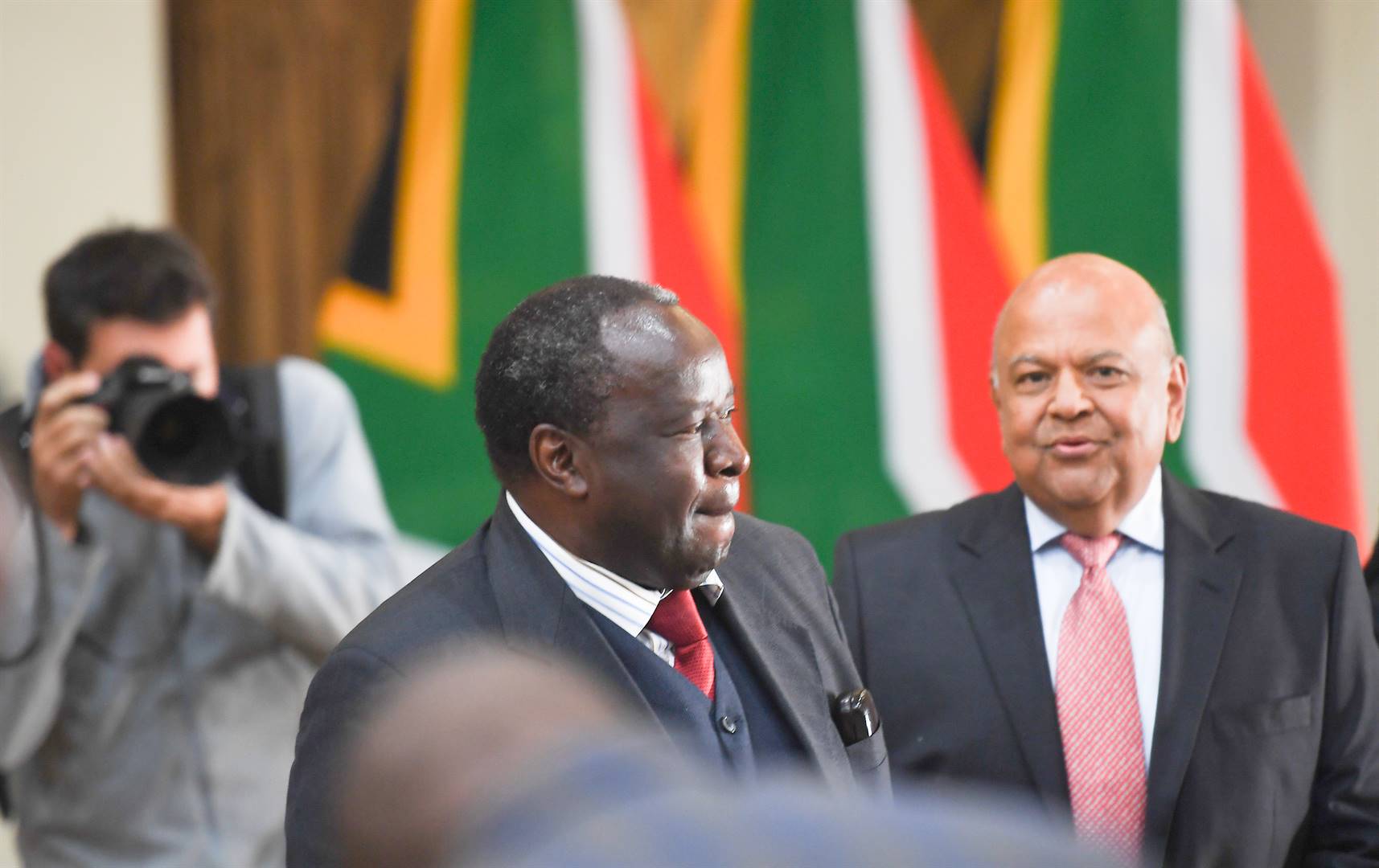
Almost exactly a year ago a fresh-faced Tito Mboweni, then the newly appointed finance minister, delivered his first Medium-Term Budget Policy Statement.
He launched into his new role with gusto. At the embargoed press conference two hours before he took to the podium in the National Assembly, he treated journalists to some economic straight-talking they hadn't seen or heard in ages.
He spoke of government having reached a crucial turning point and of difficult decisions that can't be put off any longer. He crucified Eskom for being the single biggest danger to the fiscus and national economic stability and he openly and honestly questioned the value of a national airline. The impossibly high public sector wage bill was unsustainable, he said, and extolled the value of private equity partners in failing state-owned companies.
Mboweni unrestrained was – and remains – quite a sight.
READ: Mboweni's medium-term budget in a nutshell
The consensus in October 2018 was that he was exactly the type of minister President Cyril Ramaphosa needed and that, in tandem with Pravin Gordhan at the department of public enterprises, they might just be the duo that could right the ship of state.
Mboweni, after all, doesn't have to worry about a political constituency (his ego is a big enough constituency and needs constant attention), he doesn't need the money and he doesn't want to be president. He can actually do the dirty and get the job done. He is unencumbered by the constraints of ANC palace politics and the stifling of lateral thought induced by alliance contestation.
The theory went that with Ramaphosa's political protection and support, Mboweni and Gordhan can break some bones and forge on into a brave new post state capture world, clearing the decks and making sober economic decisions.
This theme – and the same determined rhetoric by Mboweni – continued in February when he tabled the budget proper: Eskom is a danger, the public sector wage bill is too high, and we can't continue down the same road any longer.
On Wednesday South Africans got more of the same, but in the year that's elapsed since Mboweni's maiden appearance tabling a policy document in Parliament, not a lot has changed.
His speech in the National Assembly, his press conference and National Treasury's (excellent) budget policy book tell the exact same story he told South Africa in February and last October.
Treasury's diagnosis of the country's structural economic dilemmas is spot on.
Eskom remains the economy's biggest threat, the public sector wage bill is astronomical (for every R1 000 spent by government, R340 goes to paying civil servants), GDP growth is tepid and deteriorating, the debt-to-GDP ratio is ballooning, the budget deficit is increasing and expenditure on debt repayments is the single fastest growing line item in the budget.
READ: Party almost over for government's 29 000 millionaires, Mboweni warns
But Mboweni and Treasury, and presumably Ramaphosa, also knew this a year ago. And both Mboweni and Treasury admit that, as far as Eskom is concerned, progress in its unbundling "has been limited". And still there's no clear plan on restructuring its crippling debt.
The budget policy book is laced with phrases and language which seems very close to admitting defeat in government's efforts to save the country from a very precarious position: "We have not moved as rapidly … urgent action needed … (progress) mostly unrealised … significant decline … modest employment … gradual recovery … risk skewed to the downside ... "
South Africa was in a dangerous place in February, and things have deteriorated considerably.
Both Mboweni and the group of excellent bureaucrats at 40 Church Square in Pretoria – as well as the SA Reserve Bank and SA Revenue Service – know exactly what needs to be done.
A profligate state needs to be reined in urgently and non-core public assets must be sold off. The private sector also needs to be invited to invest in and own public goods and services, such as harbours and energy generation.
But in the year that's passed since his first Medium-Term Budget Policy Statement Mboweni's worst fears before he came into the job – red tape and political quicksand – have come to pass.
Almost every single one of the most urgent structural reforms are absolute anathema to ANC policy.
The culling of an ineffective public sector, selling of state assets and the introduction of (limited) private equity haven't managed to gain traction in the new dawn. Government and ANC gridlock has meant we've sunk even further into the morass of inefficiency. Nothing is getting done, political decisions take precedent over sound economic policy and fears over infighting restrains urgency.
"Options to stabilise the fiscus are limited … revenue options are constrained," Treasury declares, and adds that recovery is possible if reforms are "enacted with speed and determination".
When, during the press conference, Mboweni was asked whether the fact that his message hasn't changed in 12 months means he has admitted defeat, he replied: "We don't admit defeat, Mbowenis don't easily admit defeat … we trudge on, we keep walking on."
South Africa has been trudging along for far too long, Sir.




 Publications
Publications
 Partners
Partners























